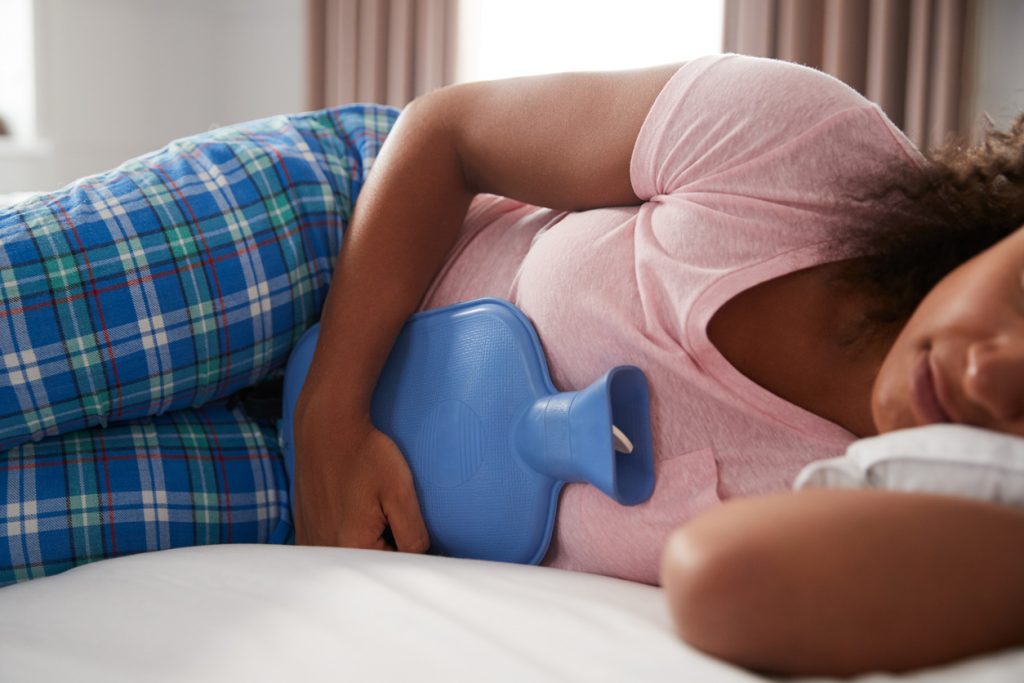Life as an ostomate comes with its own set of challenges. But for those of us with two X chromosomes, there’s a whole host of other things to consider. From periods and pregnancy to contraception and menopause, women’s health as an ostomate can be a bit trickier to navigate.
Below, we’ll address some of the common concerns that female ostomates have so you can be worry-free.
Menstrual cycles
“Do you have a period with a stoma?”
Yes, you can still get periods with a stoma, which can affect your output. How much this affects your output varies from person to person. For some, a period can make their output runnier and more frequent, while for others, a period can have no real effect on output.
“How will surgery affect my periods?”
After surgery, you might find that your periods will stop temporarily. The amount of time it takes for them to resume is different for every woman, but generally it can be about four to six weeks after the surgery. When they do return, you might notice that the period is lighter or heavier than before. This should regulate within about two or three cycles, but may take longer.

“How can I deal with my period as an ostomate?”
To help ease the discomfort of your period, try the following:
- Drink peppermint tea or herbal teas. Not only will these keep you hydrated, but they’re also great for helping with bloating and cramps too.
- If you’re up to it, then some gentle exercise can reduce your aches and pains. Plus, it’ll release endorphins which will help improve your mood.

- Heat is your friend, so try soaking in a hot bath, use a heating pad or your ever-trusty hot water bottle to soothe any abdominal pain. Just remember not to leave anything too hot on the skin around your stoma bag as this can cause irritation.
- Get plenty of sleep. Sleep deprivation on your period isn’t the best of combinations.
If you are still experiencing increased levels of pain or are concerned about your periods, please speak with your GP.
Fertility and pregnancy
“Can I get pregnant with a stoma?”
Yes, you can still get pregnant with a stoma. Many ostomates experience quite a normal pregnancy provided they aren’t dealing with other health issues at the same time.
Getting pregnant for some ostomates may prove to be more difficult. For example, if you’ve had your rectum and anus removed, or pelvic surgery, you may also have scarring. This scarring can impact reproductive organs and alter the normal anatomy. However, invitro fertilisation (IVF) is very effective for ostomates.
Read more on our guide to pregnancies and ostomies, here.
“How long should I wait after stoma surgery to conceive?”
After surgery, getting plenty of rest and recovery in the first eight weeks is important. Your body will need to get used to things and properly heal, which certainly takes time.
Be sure to discuss your plans to get pregnant with your surgeon after your surgery. They’ll be able to help you decide when the best time to start trying for a baby will be.

“What happens to my stoma during pregnancy?”
The height, diameter and amount your stoma protrudes will all probably increase. The skin surrounding your stoma will probably start to dip, crease and curve more than usual too.
Over time (usually into the latter part of the second trimester and in the third trimester), this may mean you’ll have to start using a different appliance than you’re used to. If you usually get your flange/water pre-cut, then you’ll need to start getting ones you cut yourself.
“Can I give birth naturally with a stoma?”
It is possible to have a natural birth with a stoma. It is something the doctors and midwives will discuss with your during the course of your pregnancy and as you approach the delivery. Nevertheless, a birthing plan should be in place in case of any complications.
For more information on getting pregnant as an ostomate, check out guest blogger Alannah’s insights into how a stoma affected her fertility.
Contraceptive methods
For the most part, contraceptives are just as effective for ostomates as they are for those without. However, you should still consider certain factors particularly those with high output and known absorption issues.
You should always talk to your stoma nurse or healthcare professional to find the birth control method that’s best suited to you.

- The pill: It’s been said that birth control pills might be less effective for those with ileostomies since absorption may be unreliable. If this happens, then you may need to have your dosage adjusted if your small bowel is struggling to absorb the medication well, or you may need to look for alternative methods of hormonal contraception such as injections or a birth control patch.
- Surgical changes: Certain types of stoma surgery can alter the anatomy of the vagina and uterus. Insertion and retention of diaphragms, caps, IUDs, or coils may be difficult as a result. Be sure to talk to your surgeon about any changes to your anatomy that might affect such contraception.
- Condoms: An effective and highly reliable method of contraception, condoms are safe to use as an ostomate, as long as they’re used correctly and consistently.
Looking for information on starting relationships and getting intimate as an ostomate? We’ll talk you through what to expect right here.
Menopause
As well as hot flushes, night sweats, mood swings, brain fog and insomnia, the menopause can also have a whole host of other effects on your body, from weight gain to loss of bone and muscle density.
As estrogen levels start to decline, women can also experience changes in their skin and bowel habits, which are especially relevant if you have a stoma. Skin can become dry, oily, sensitive or inflamed, due to hormone imbalance. A change in hormone levels can also cause food to pass through the bowel more quickly, which may cause constipation, diarrhoea, gas or bloating.
There are steps you can take in your stoma care routine to minimise the impact of menopause and we’ll be sharing some of these during #MenopauseAwarenessMonth. Keep an eye on our blog for more details.
At Trio, we’re dedicated to letting you live your life your way: comfortably, safely, and worry-free. To check out our essential range of skincare products head here, and for more stoma advice, news and guest posts, be sure to stop by the Trio blog.
Back




